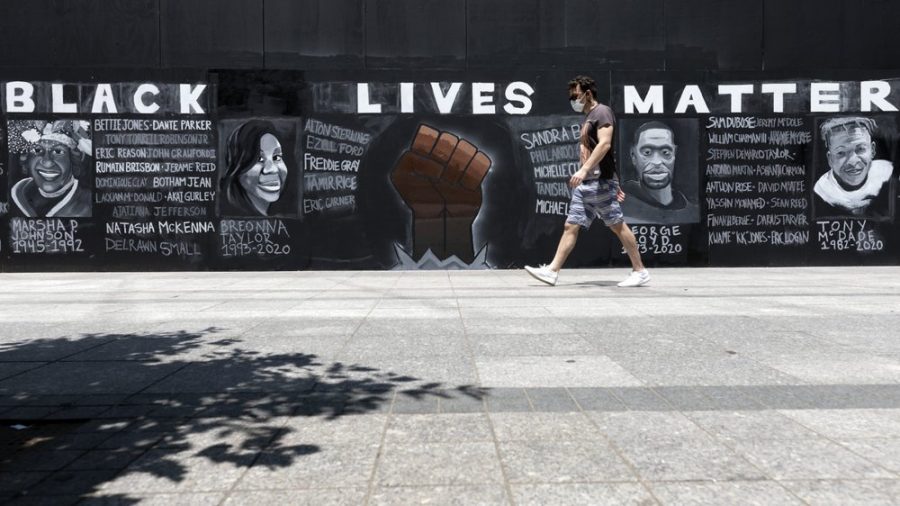Race Issues: What Has Black Lives Matter Fundraising Achieved?
If you were an active Instagram user in the summer of 2020, you’ll likely recall the common online actions used to indicate that a person was a supporter of the Black Lives Matter (BLM) movement. They could have been as insignificant as a post containing nothing but a black square, a trend quickly ridiculed for its virtue-signaling undertones. If someone wanted to take it a step further, they’d reshare an infographic or news article, to show that they were doing their part in “educating” people. What was the true shining star among all of these, however, was posting proof of a donation towards the cause, or even starting a personal fundraiser. This highlighted something tangible, an unquestionable marker of one’s contribution to the BLM movement.
I recall being impressed by several of these financial efforts, proud of my teenage classmates for contributing so much from their own limited resources and dedicating valuable time towards mobilizing others to follow suit. As this messaging made its way around the world, donations followed, and the Black Lives Matter Global Network Foundation (BLMGNF) ended 2020 with $90 million raised, according to Black Lives Matters’ year-end impact report. Of this money, they dispersed about a quarter, or $21.7 million, to more than 33 smaller activism organizations. This, according to CNN, indicated fund usage nearly three times the industry norm. It appeared exciting that so many organizations were being helped, and it felt as if this was the beginning of a sustained fight for social reorganization.
Yet, the glory days of the BLMGNF would soon begin to crumble. Near the beginning of 2021, Co-Founder and Former Executive Director Patrisse Cullors became the center of national scrutiny, primarily from conservative media outlets, around her purchases of four residences across the U.S. totalling over $3.2 million in value, according to the New York Post. Though there is no evidence to suggest that BLMGNF funds were appropriated to do so, it called into question the organization’s financial transparency practices. Around the same time, a coalition of local BLM chapters formed the #BLM10, calling upon the BLMGNF to provide increased transparency and to deliver on its promises of funding. However, in a statement emailed to Politico, the BLMGNF refuted any wrongdoing and claimed that most of the organizations involved with the #BLM10 declined to be officially affiliated with the BLMGNF and thus were not eligible to receive much funding from them.
So far in 2022, the BLMGNF has received backlash over its purchase of a $6.3 million property in Toronto, according to Fox News, through a Canadian-based organization called M4BJ. Adding to skepticism around the transaction is the fact that Cullors’ wife, Janaya Khan, is one of M4BJ’s founders. The property is home to the Wildseed Centre for Art and Activism, which describes itself as a “space that serves to nurture radical Black creation,” according to their website. The move was met with backlash from BLM Toronto figures Sarah Jama and Sahra Soudi, who revealed through Twitter that the Wildseed Centre purchase affirmed their decision to leave the organization. In a statement attached to the tweet, they voiced other experiences regarding a lack of transparency and accountability, including a complex non-disclosure agreement requiring a signature from all new members.
Despite all of the negative attention surrounding the BLMGNF, I remain hesitant to denounce it as being corrupt or deceitful, qualities that conservative media outlets are persistently attempting to associate with the charity. However, I do empathize with those who are confused or potentially regret giving money to the organization. Its activities are somewhat indisputably unfocused, and the unclear structure regarding the “Black Lives Matter” brand and its scale makes the impact of the money more difficult to follow.
My hope for fellow supporters of the movement is to consider more critically the causes you donate to in the future. If building a network of activists around the Black Lives Matter Global Network Foundation is important to you, then keep donating to them. But I know that myself and others are keen on seeing our money help in more direct ways, and so to all who are willing to donate in the future, look for more specific organizations that affect things you care about. That could be Black scholarship funds, mental health counseling centers, children’s sport and artistic outreach programs or simply making your next necessity purchase something from a local Black business. If you lack resources to contribute financially, see how you can offer up your time in the form of volunteerism. If we remove middlemen from the equation in our giving, I’m almost certain we’ll all be better for it, and continue moving towards a vision of racial equity without fears of mismanagement and conflict.












